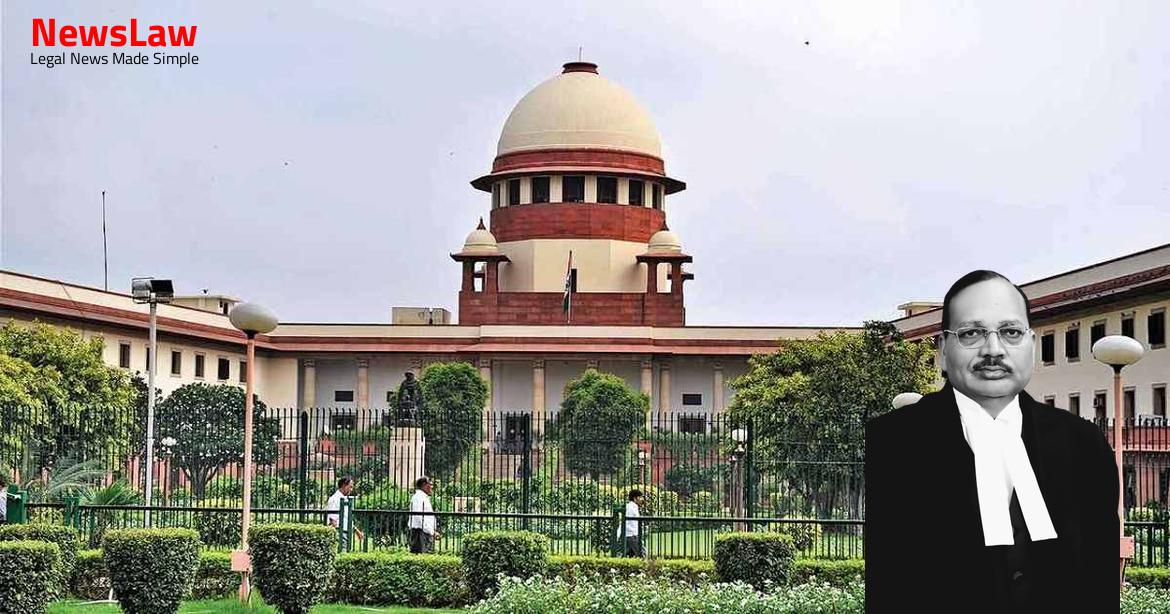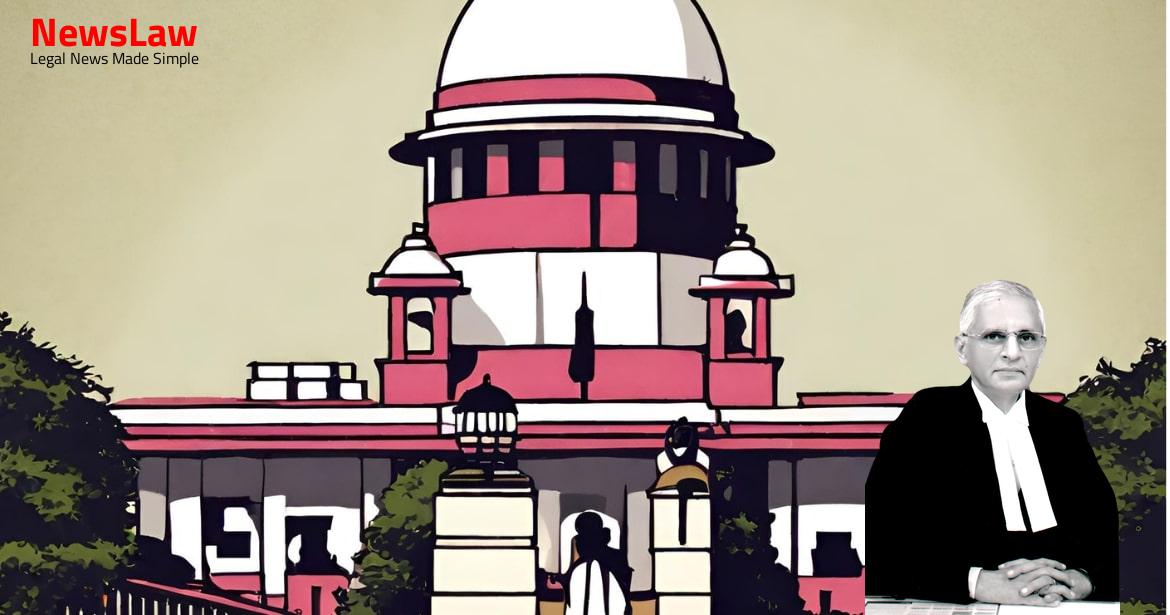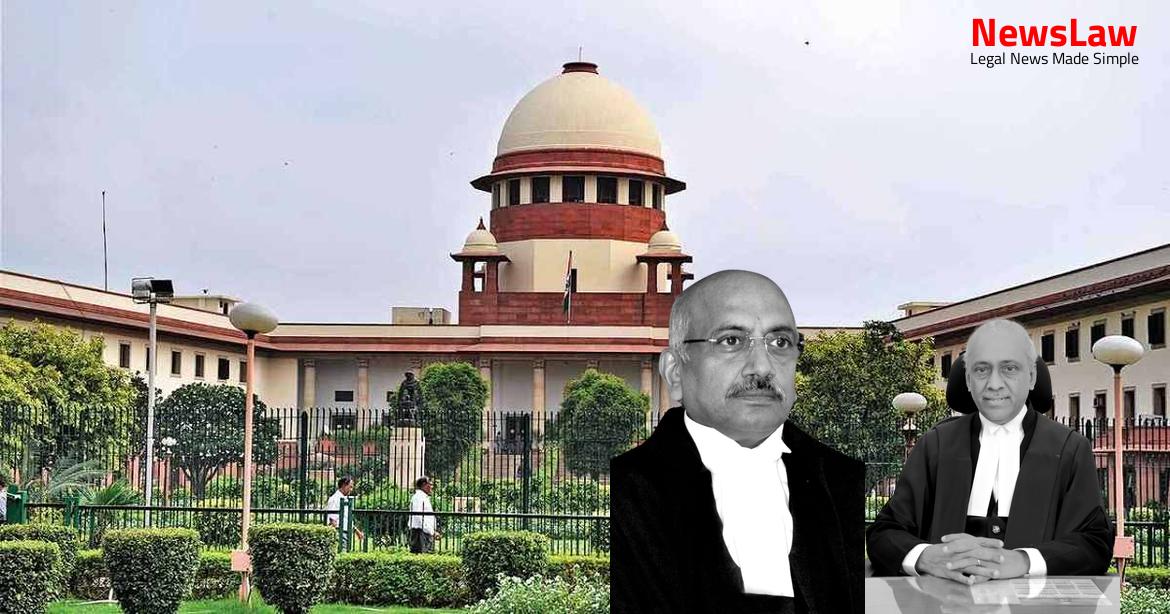The Court’s thorough legal analysis on the limitation period in IBC proceedings sheds light on the application of Section 18 of the Limitation Act. This analysis has significant implications for financial creditors and corporate debtors navigating the intricacies of IBC cases. Understanding the validity of acknowledgments in balance sheets for extending the limitation period is key. Let’s delve into the nuances of this crucial aspect of IBC law.
Facts
- Appellant filed an application for initiation of the CIRP on the grounds of default in paying a financial debt of approximately Rs 189 crores as of 30 June 2018.
- The respondent failed to honor the terms of the credit facilities provided by the appellant, leading to default on repayments and classification of the account as an NPA on 10 June 2014.
- Appellant attempted recourse to Securitisation and Reconstruction of Financial Assets and Enforcement of Security Interest Act 2002 and Recovery of Debts Due to Banks and Financial Institutions Act 1993.
- Respondent offered a one-time settlement of Rs 61 crores in January 2016, which was conditionally accepted by the appellant. The offer was later revised to Rs 40.6 crores in September 2017, but was refused by the appellant.
- The application under Section 7 was held to be barred by limitation as it was filed beyond four years from the date of default.
- The NCLAT stated that there cannot be two defaults in respect of the same debt for DRT and IBC purposes.
- The NCLAT upheld the NCLT’s decision on 17 November 2020, rejecting the application under Section 7 of the IBC due to limitation.
- The NCLT observed that the application was filed beyond three years from the date the right to apply accrued.
- The NCLAT cited a case where a balance sheet statement was not considered an acknowledgment of liability under the Limitation Act.
- The NCLAT calculated the limitation period in accordance with Article 137 of the Limitation Act.
Also Read: Balancing Power and Transparency: Electoral Bonds Struck Down, Disclosure Mandated
Arguments
- The appellant in the present appeal appeared through senior counsel Mr. Niranjan Reddy.
- Senior counsel Mr. Shyam Divan appeared on behalf of the respondent.
- The NCLT relied on the judgment in V Padmakumar.
- The decision in V Padmakumar was overruled in a judgment of a three-Judge Bench in Asset Reconstruction Company (India) Limited v Bishal Jaiswal and Another.
- Justice R F Nariman, speaking for the Bench, held that the majority decision of the Full Bench in V Padmakumar is contrary to the judgments referenced.
Also Read: Recall of Resolution Plan Approval: Legal Analysis
Analysis
- The burden of prima facie proving occurrence of default and the application being within the period of limitation is on the financial creditor.
- The Adjudicating Authority can consider material presented by the corporate debtor to determine if the application is within the limitation period.
- Section 18 of the Limitation Act was held applicable to IBC proceedings in the case of Sesh Nath Singh v Baidyabati Sheoraphuli Coop. Bank Ltd.
- Provisions of the Limitation Act are made applicable to proceedings under the IBC as far as may be applicable.
- After the enactment of Section 238-A of the IBC, the provisions of the Limitation Act apply to proceedings before the adjudicating authority, NCLAT, the DRT, or the Debt Recovery Appellate Tribunal.
- Acknowledgement in a balance sheet without a qualification can be relied upon for IBC proceedings.
- Acknowledgment of liability after declaration of NPA but before expiration of three years can extend the limitation period.
- Filing a balance sheet is mandatory under Companies Act, and notes forming part of it can be recognized for acknowledgment.
- The principle of extending limitation under Section 18 of the Limitation Act is applicable in IBC proceedings.
- The date of default for IBC action is based on non-payment of debt, not just declaration of NPA.
- Acknowledgments in balance sheets may have caveats that need to be examined for extending limitation.
- The onus is on the financial creditor to demonstrate default and acknowledgment of debt at the time of filing an application under Section 7 IBC.
- Section 18 of the Limitation Act gets triggered each time the borrower or guarantor acknowledges their liability to pay the debt.
- Principles that emerge include the applicability of Section 18 of the Limitation Act in IBC proceedings and the validity of unqualified acknowledgments in balance sheets for extending limitation period.
- Reliance placed on the letter of revival dated 26 April 2015 and the offer of OTS on 6 November 2015.
- The court is inclined to restore the proceedings back to the NCLT for fresh adjudication.
- Not entering the factual dispute on whether the application under Section 7 of the IBC would initiate the CIRP.
- Mr Niranjan Reddy relied on documentary material to show acknowledgements of liability were within three years from the date of default.
Decision
- The impugned judgment and order of the NCLAT dated 17 November 2020 and of the NCLT dated 16 September 2020 have been set aside.
- The proceedings are restored to the file of the NCLT for adjudication afresh, with all rights and contentions of the parties open on the factual aspects of the controversy.
- All rights and contentions of the parties on merits are to be adjudicated upon before the NCLT.
- The NCLT is directed to expeditiously dispose of the application under Section 7 of the IBC, instituted on 19 September 2018, no later than within three months from the date of this order.
- Any pending application(s) stand disposed of.
Case Title: STATE BANK OF INDIA Vs. KRISHIDHAN SEEDS PVT. LTD. (2022 INSC 428)
Case Number: C.A. No.-000910 / 2021



